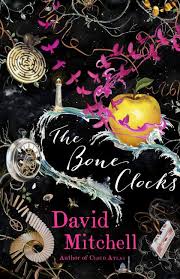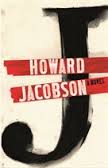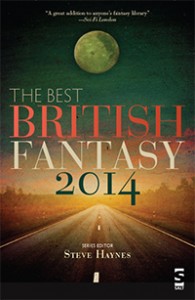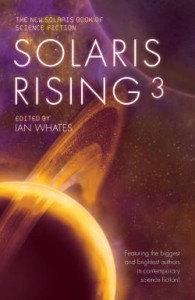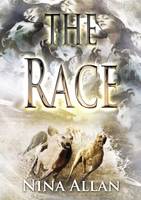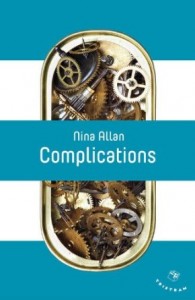The non-fiction category of SF awards is often sorely neglected, not just in terms of the number and variety of nominations received, but in terms of overall discussion. We relegate this category at our peril, however, because an informed, rigorous and enthusiastic critical hinterland is what might be deemed a desirable necessity, crucial to the advancement and betterment of any field of interest, with science fiction being no exception.
As with short fiction, we are now in a position to access more information, speculation and argument about SF than ever before. Whilst some remain critical of the digital ‘democracy of opinion’, arguing that the sheer bulk of unedited, unsolicited and ill-informed commentary can have only a diluting and detrimental effect on the discourse, I am not one of them. I count universal access to critical platforms as unequivocally a good thing. The space available is infinite, ergo there is room for everyone and no ‘wasted space’. We should not forget that online magazines, forums, blogs and discussion boards have provided and continue to provide both platforms and entry points for those who might never have felt the confidence to submit articles to print magazines – magazines they might not have known about or could not have afforded to subscribe to in the first place. The diversification of commentary through digital media is one of the most welcome developments in our field in recent years. And if you happen to come across a piece of rhetoric that seems pointlessly aggressive, lacking in direction, badly written, offensive or just plain awful (as you surely will) it takes less than a second to exercise your discretion and close the window.
One criticism that I have some sympathy for is the claim that the current fashion for short, immediately assimilable ‘thinkpieces’ has led to a corresponding decline in sustained, quality criticism in online venues. Certainly, the perceived need for speed of response – to have one’s say on a current topic immediately and ahead of the rest – has tended to mitigate against essays that take longer than an hour to write or ten minutes to read. But surely this matter is in our own hands? Whilst it can be frustrating to see any number of half-arsed blog posts rattled off at the speed of light and before the author has given themselves time to form a properly constructed argument, there is no law that states that we ‘have’ to react, react, react, immediately and with venom. There is plenty of quality work out there, and we owe it to ourselves as readers, writers and critics to discover it, promote it, argue over it and contribute to it. One of the salient advantages of online criticism is the writer’s ability to link to other relevant works, thus bringing divergent voices and points of view simultaneously to the same arena. This is a whole new way of constructing criticism, and should not be downplayed.
Deciding what to nominate in the non-fiction category can be especially difficult because of the variety of what’s on offer and the differing modes in which it’s presented. How can we possibly decide between a full-length monograph, and a 1,000-word essay, for example? I’m not even going to try and answer that question at this point – that’s an argument for another day (or perhaps for two separate and distinct award categories..?) Rather I’d like to draw your attention to a number of non-fiction items, in various formats, that happened to catch my attention in 2014. In no particular order, then:
Call and Response by Paul Kincaid (Beccon Publications) This collection of essays on everyone from H. G. Wells to China Mieville showcases Paul Kincaid’s ongoing commitment to and engagement with science fiction literature to marvellous effect. The table of contents brings together essays culled from publications as various as Foundation, The TLS, Strange Horizons, the LARB and Vector, and includes all-new section introductions and a generous handful of previously unpublished pieces. Essential on every level.
Greg Egan by Karen Burnham (Modern Masters of Science Fiction, University of Illinois Press) I snapped this up when it was cheap on Kindle, because I enjoy Karen Burnham’s criticism and because I think Greg Egan is a writer I need to get to grips with, at entry level at the very least. I think this is a wonderful monograph. Burnham clearly knows Egan back to front at both a literary and a scientific level. She’s in sympathy with his ideals as a writer, but never lets her appreciation of what he’s up to blind her to the criticisms levelled against him. Her enthusiasm and knowledge bounce off the page, and if I wanted a travelling companion on the road to understanding a writer so unabashedly scientific in his approach to science fiction, I could not have asked for a better one. This book is entertaining, informative, and endlessly thought-provoking. It has also left me with the resolution to read at least one Greg Egan novel this year.
Stay by John Clute (Beccon Publications) In common with the Paul Kincaid book, John Clute’s 2014 collection of essays boasts a new introduction, several previously unpublished pieces (including a never-before-seen short story) as well as updates and revisions to all previously published essays. John Clute is one of our greatest commentators bar none. His essays form some of the most astute and articulate literary criticism around; they are also works of art, and I live in a simmering state of outrage that he remains more or less unknown outside the genre. Included in Stay is ‘The Darkening Garden’, a ‘short lexicon of horror’ and one of the most persuasive and ingenious analyses of horror fiction I have ever read (even if you don’t agree with it, it’s still brilliant, and would be worth the cover price all by itself). Nor should we forget Clute’s irregular column for Strange Horizons, Scores. Particular highlights for me in 2014 would include his thoughts on Lucius Shepard’s Beautiful Blood and Jo Walton’s My Real Children and his side-by-side analysis of Howard Jacobson’s J and Martin Amis’s The Zone of Interest.
Deep Forests and Manicured Gardens: a look at two new short fiction magazines – Jonathan McCalmont (Ruthless Culture) I truly don’t have enough good words to say about this piece. It’s a multi-part essay in which the two internally-linked sub-sections on the magazines in question (Terraform and Uncanny) form essential components. I don’t always agree with Jonathan on a point-by-point basis, but I admire his criticism enormously, and believe that if we had more commentators like him – rigorous, knowledgeable, engaged, and most importantly uncompromised by genre factionalism or the concerns thereof – the critical hinterland of science fiction would be in a much ruder state of health. In Deep Forests and Manicured Gardens, Jonathan discusses two seemingly opposed tendencies within genre short fiction (and one might argue within genre fiction as a whole), the reflection of said tendencies within the magazine culture and the implications for the vitality of new short fiction and emerging writers. Much of his concern is tied up in what he sees as the shifting of the centre ground of SF from a primarily ideas-based ‘branch of non-fiction’ towards a mulch of ‘over-written sentence fragments about magical people experiencing emotions’. He is just as keen to interrogate a literary landscape in which new science fiction stories are not so much a medium of communication with an audience as the currency of social advancement within the genre.
I remain undecided as to how much of Jonathan’s argument I agree with – all mulchy middle ground, me – but I find much that interests me in his viewpoint, and the gutsiness of his writing always leaves me feeling liberated and inspired generally. I feel wholeheartedly grateful that he has written this essay, as well as what might be deemed its companion pieces, Short Fiction and the Feels, and A Perspective on Perspectives. I am always genuinely shocked when I notice people feeling threatened by essays like these. If we are to evolve and compete as a branch of literature, objective, up-front criticism of this kind is what we need, and a lot more of it.
Transgressing Genre Boundaries and All That by Ethan Robinson (Marooned Off Vesta) Science fiction is a unique literature and a radical literature. Shouldn’t we be fighting to keep it that way? Like Jonathan McCalmont’s essay above, Ethan Robinson’s piece is an articulate and robust interrogation of the state of science fiction literature today, the direction it appears to be taking and whether the push towards the convergence of the science fictional and the mainstream is in any sense desirable. It’s a wonderful piece of polemic, one I’ve commented about before and recommend unreservedly. Whether you agree with it or not, Ethan’s argument is valuable, timely and absolutely necessary. More like this, please! (And if there’s any way we can group his ‘Sturgeonblogging’ series of essays under a single project heading, nominate that, too!)
Review: Interstellar by Abigail Nussbaum (Asking the Wrong Questions). I’ve said it before and I’ll say it again: Abigail Nussbaum is shaping up to be one of our most knowledgeable and articulate critics. This essay on Nolan’s film is a fine example of what she does so brilliantly, commenting on the larger movements within science fiction by means of close focus on a single work or group of works. She’s such a good writer. Her piece Mad as Hell, Thoughts on Aaron Sorkin is also pretty much essential reading.
Random Snapshots of Book Hunting in Downtown Nairobi by Mehul Gohil. Exactly what it says on the tin. This is a wonderful piece, packed with insights, compelling writing and the love of science fiction. This was billed as Part 1, and though the essay is complete in itself I am still hoping Part 2 will appear at some point in the future.
The Unbearable Solitude of being an African Fangirl by Chinelo Onwualu (Omenana) A short piece, but an essential read.
Black Nerds , Black Cool, and Afrofuturism by Troy L. Wiggins is exactly the kind of longer, in-depth essay that is vital to the genre, to promoting diversity, understanding and exploration within the genre, and that I for one would love to see more of. Please read this.
China Dreams: contemporary Chinese Science Fiction by Ken Liu (Clarkesworld) Ken Liu is tireless in his promotion of Chinese science fiction, and it’s wonderful to see Clarkesworld taking the initiative here not just in bringing us more stories, but more information about them, too. This essay is a medium-length overview of the field as it currently stands. As Liu himself says upfront, giving anything like a comprehensive assessment of a literature so intrinsically diverse and multitudinous is pretty much impossible, but here at least is a place to start. A must-read.
I Love Writing Books – so I Need to Get Better at Writing Them by Kameron Hurley. I admire Kameron Hurley as a writer. I also like Kameron Hurley’s blog, and feel a generous measure of identification with the stuff she has to say about the writing process, emphasising the absolute necessity of consistent hard work and perseverance. She’s always worth reading, on any subject, and I admire her honestly. Her piece Some (Honest) Publishing Numbers, and (Almost) Throwing in the Towel is refreshingly candid about the whole getting-published-and-staying-published circus.
Me and Science Fiction: SF and Politics by Eleanor Arnason (Strange Horizons) “What I like about SF as a traditional category is that it has room for both slipstream and pop culture. It does not merely use pop culture, as a fine art writer might do, it includes it. The gamers and cosplayers and comic fans are not the subjects of our art. They are us.” Eleanor Arnason’s series of columns for Strange Horizons have been excellent and I hope there’ll be more of them. She has a way of inviting people into her writing, facing down challenging subjects in a dynamic and inclusive manner. Do also take a look at Me and Science Fiction: Books and the Death of the Middle Class, also in Strange Horizons.
Strange Horizons Bookclub: Tigerman by Niall Harrison, Aishwarya Subramanian and Maureen Kincaid Speller (Strange Horizons) A fascinating discussion of a book I thought I wasn’t going to get on with (because superheroes) but then did. (It’s stayed with me actually, far more than I thought it would.) The participants in this roundtable found plenty to talk about, and this article provides the perfect starting point for anyone wanting to get deeper into Tigerman, or simply to eavesdrop on an informed and entertaining analysis of some aspects of contemporary science fiction, beginning with the question of whether Tigerman can be considered properly science fictional in the first place. These book clubs are a wonderful innovation at SH – I’m already looking forward to the next one.
Reviewing the Other: Like Dancing about Architecture by Nisi Shawl (Strange Horizons) This truly is an essential read for any reviewer, to be bookmarked and passed on at every opportunity.
Dave Hutchinson’s Europe in Autumn by Maureen Kincaid Speller (Paper Knife) The only thing wrong with MKS’s reviews is that we don’t see more of them! See also her review of Sarah Tolmie’s The Stone Boatmen at Strange Horizons, and let’s hope Maureen decides she’s up for blogging the Clarke again this year, because her 2013 posts were a highlight of the awards season.
Feminist World Building: Toward Future Memory by L. Timmel Duchamp (The Cascadia Subduction Zone) CZS is a fascinating periodical that really should be better known than it is. This essay blends the personal with the historical in an intricate and involving way and is exactly the kind of considered, informed non-fiction writing the genre needs more of. It’s powerfully argued and beautifully constructed. A keeper.
Biting Style: The Bone Clocks and Anti-Fantasy by Max Gladstone. This is a thoughtful and perceptive essay, arguing that Mitchell’s ham-fisted use of fantasy in The Bone Clocks was kind of intentional. I was personally very disappointed by the novel, and (though I hate to admit it, even now) ended up coming down more on the side of James Wood’s less than generous analysis in the New Yorker. But I found Gladstone’s piece so fascinating and well argued that it almost – almost – persuaded me to reconsider. For an impassioned Joycean ‘yes!’ to The Bone Clocks (and an antidote to the Wood piece), see James Smythe’s affirmatory review at Strange Horizons.
The Expanding Borders of Area X: Jeff VanderMeer’s Southern Reach in the Context of a Weird Renaissance by Scott Nicolay (Weird Fiction Review). A great little essay on the history of weird fiction, the reasons for its current flowering, and how Jeff VanderMeer’s seminal trilogy fits into that. It’s also worth noting that Nicolay’s own debut collection Ana Kai Tangata has received some great press and is a likely candidate for some awards of its own this year. I’m looking forward to reading it.
Writing is a Lonely Business: James McKimmey, Philip K. Dick and the Lost Art of Author Correspondence by Jason Starr (Los Angeles Review of Books) A lovely piece that takes an in-depth look at a set of letters written by Dick and McKimmey ‘when they were both young, emerging genre writers’. Starr’s essay also makes some more general observations about the value of correspondence as an insight into a writer’s life and work. As someone who has derived significant pleasure from reading published volumes of writers’ letters over the years, this subject interests me a great deal. Only time will tell if the form will survive the internet (I think it will – writers love writing to each other, and we’re going to carry on doing it; whether that’s physically or electronically is of lesser importance) but this sensitive and personal reminiscence does a good job of reminding us of why such letters are to be treasured.
Rambling, Offensive and Unbeatable: Beam Me Up, Old School Sci-Fi by Sandra Newman (The Guardian) “The average reader is no longer a mind-blown teen who will accept any unpleasantness in exchange for cool ideas. The average reader is the average reader. So editors are acquiring books according to criteria that were formerly incidental to the genre – quality, readability, plots that make sense. The twisted misogyny is gone, and with it the bracing misanthropy. The cool ideas are still there, but a certain anarchic power has been lost.” There was a dismaying and predictably knee-jerk reaction to Newman’s piece in some quarters, with people choosing to interpret it as a call either to excuse or, even more bizarrely, put back the racism and misogyny that dogs many of the science fiction texts that are considered by the orthodoxy as classic. This is so obviously not what Sandra Newman was saying. Like Jonathan McCalmont and Ethan Robinson above, what she’s talking about is the slide towards a new orthodoxy in SF, a bland kind of crossover that doesn’t really say much of anything, much less voice opinions that might be considered provocative. The piece may be roughly worded in places, but what it has to say about the maverick tradition in science fiction is well worth reading and considering.
Don’t forget that nominations for the BSFA Awards close on January 31st. Get yours in now!
